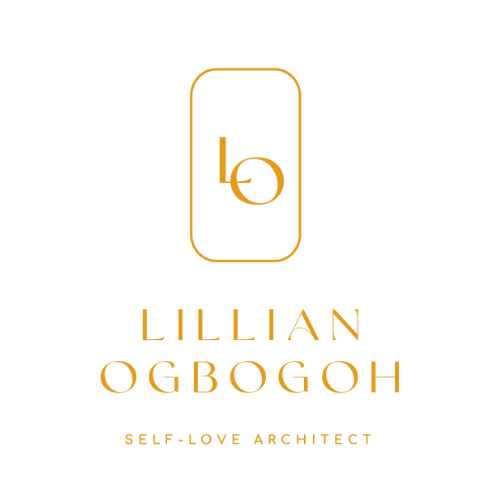The journey of self-discovery is an essential part of personal growth and development. It is a lifelong process that allows us to connect with our true selves, recognise our strengths and weaknesses, and ultimately, become the best version of ourselves. When we embark on the path of self-discovery, we open ourselves to endless possibilities for growth, transformation, and fulfilment.
In today’s fast-paced world, it’s easy to get caught up in the daily grind and lose touch with our authentic selves. We often find ourselves conforming to societal expectations rather than pursuing our own unique passions and purposes. However, by taking the time to explore our inner selves and embark on a journey of self-discovery, we can create a life that is truly aligned with our values, desires, and aspirations.
We’re delving into the importance of self-discovery in personal growth, the key elements of the self-discovery process, and how to embark on your path. We will also discuss practical tips for overcoming obstacles and challenges that may arise along the way.
The importance of self-discovery in personal growth.
Self-discovery is the foundation of personal growth and development. It is the process of understanding who we are at our core, recognising our strengths and weaknesses, and uncovering our unique passions and purpose. By embarking on a journey of self-discovery, we open ourselves up to the transformative power of personal growth, allowing us to evolve into the best version of ourselves.
Through self-discovery, we gain a deeper understanding of our values and beliefs, which guide our actions and decisions in life. This clarity allows us to make choices that align with our true selves, leading to greater fulfilment and happiness. Moreover, self-discovery helps us identify areas in which we can grow and improve, providing us with a roadmap for personal development.
In essence, self-discovery is the key to unlocking our full potential and living a life of purpose, passion, and fulfilment. By embracing the journey of self-discovery, we empower ourselves to become the architects of our own lives, shaping our destiny according to our own unique vision.
Key elements of the self-discovery process.
The process of self-discovery is a deeply personal and introspective journey that requires commitment, honesty, and self-reflection. While everyone’s path may look different, there are several key elements that can help guide us along the way:
- Self-awareness: Developing self-awareness is the first step in the self-discovery process. This involves becoming more in tune with our thoughts, emotions, and behaviours, and recognising how they impact our lives. By cultivating self-awareness, we can identify patterns and habits that may be holding us back and gain a clearer understanding of our true selves.

- Self-exploration: Once we have developed self-awareness, we can begin the process of self-exploration. This involves delving deeper into our inner selves, examining our values, beliefs, passions, and desires. Through self-exploration, we can uncover our authentic selves and begin to align our lives with our true purpose.
- Self-reflection: The self-discovery process also involves regular self-reflection, which allows us to evaluate our progress and make necessary adjustments along the way. By regularly reflecting on our experiences, emotions, and actions, we can gain valuable insights into our personal growth and development.
Questions for self-discovery: Uncovering your true self.
One of the most effective ways to embark on your journey of self-discovery is by asking yourself powerful questions that provoke deep introspection and self-reflection. These questions can help you uncover your true self, revealing your values, passions, and purpose. Here are some questions for self-discovery to get you started:
What are my core values, and how do they guide my actions and decisions?
What are my unique strengths and talents, and how can I leverage them to create a fulfilling life?
What are my passions, and how can I incorporate them into my daily life?
What brings me joy and fulfilment?
What are my short-term and long-term goals, and how do they align with my values and purpose?
In what areas of my life do I feel unfulfilled or stagnant, and what steps can I take to address these areas?
How can I cultivate greater self-compassion and self-acceptance?
How to work on yourself: Strategies for self-improvement
Embracing the journey of self-discovery means continually striving for self-improvement and personal growth. Here are some strategies for how to work on yourself as you embark on your path:
- Set clear goals: Identifying specific, measurable, achievable, relevant, and time-bound (SMART) goals can help you create a roadmap for personal growth and development. By setting clear goals, you can track your progress and celebrate your achievements along the way.
- Develop a growth mindset: A growth mindset is the belief that our abilities and intelligence can be developed through effort, learning, and perseverance. Cultivating a growth mindset can help you embrace challenges, learn from setbacks, and continually strive for self-improvement.
- Prioritise self-care: Taking care of our physical, emotional, and mental well-being is crucial for personal growth and self-improvement. Make sure to prioritise self-care activities such as exercise, healthy eating, meditation, and maintaining a strong support system.
- Seek feedback and support: Receiving feedback from others can provide valuable insights into our strengths and areas for improvement. Moreover, surrounding ourselves with supportive individuals who encourage our growth and development can help us stay motivated and accountable on our self-discovery journey.
- Embrace lifelong learning: Committing to lifelong learning can help us expand our knowledge, skills, and perspectives, leading to personal growth and self-improvement. Seek out opportunities for learning and growth, such as reading, attending workshops, or enrolling in online courses.

Working on myself: The daily commitment to growth.
Personal growth and self-discovery are lifelong endeavours that require daily commitment and effort. To truly embrace the journey, it’s essential to integrate self-improvement practices into our daily lives. Here are some suggestions for working on yourself each day:
Establish a morning routine: Starting your day with a consistent routine that includes self-care, reflection, and goal-setting can set the tone for the rest of your day and help you stay focused on your personal growth journey.
Practice mindfulness: Incorporating mindfulness practices such as meditation, deep breathing, or journaling into your daily routine can help you stay present, self-aware, and grounded as you navigate the challenges and joys of life.
Set aside time for reflection: Carve out time each day to reflect on your experiences, emotions, and actions. This can help you identify patterns, gain insights, and make necessary adjustments to support your personal growth.
Celebrate your successes: Acknowledging and celebrating your achievements, both big and small, can help you maintain motivation and momentum on your self-improvement journey.
Stay open to new experiences: Embrace opportunities for growth and learning by trying new activities, meeting new people, and stepping outside of your comfort zone.
Embracing the transformative power of self-discovery
The journey of self-discovery is a transformative process that can lead to profound personal growth, fulfilment, and empowerment. By embracing this journey, we open ourselves up to the possibility of change, evolution, and self-improvement. We become the architects of our own lives, shaping our destiny according to our own unique vision and purpose.
By embarking on the path of self-discovery, we also cultivate greater self-awareness, self-compassion, and self-acceptance, allowing us to live more authentic and fulfilling lives. In essence, the journey of self-discovery is the ultimate act of self-love, as it enables us to connect with our true selves and create a life that is truly aligned with our values, desires, and aspirations.
Practical tips for embarking on your self-discovery journey
Ready to embark on your journey of self-discovery? Here are some practical tips to help you get started:
- Create a dedicated space for self-reflection and exploration, such as a journal or a quiet corner of your home where you can meditate and contemplate.
- Schedule regular “check-ins” with yourself to assess your progress, celebrate your achievements, and adjust your goals as needed.
- Surround yourself with supportive individuals who encourage your growth and development.
- Be patient and gentle with yourself as you navigate the challenges and joys of self-discovery. Remember that personal growth is a lifelong process, and there is no “finish line” to reach.
- Stay curious, open-minded, and willing to explore new perspectives and experiences.
Overcoming obstacles and challenges in self-discovery.
The journey of self-discovery is not without its challenges and obstacles. At times, we may encounter resistance, fear, or self-doubt as we delve deeper into our inner selves and confront our vulnerabilities. However, by staying committed to our personal growth and development, we can overcome these challenges and continue to evolve and transform.
Here are some strategies for overcoming obstacles and challenges in self-discovery:
- Acknowledge and accept your emotions: Embrace the full range of your emotions, both pleasant and unpleasant, without judgement or resistance. By allowing ourselves to feel our emotions fully, we can gain valuable insights into our inner selves and better navigate the challenges of self-discovery.
- Reframe challenges as opportunities for growth: Instead of viewing obstacles as setbacks, try to see them as opportunities to learn, grow, and evolve. This shift in perspective can help you approach challenges with curiosity and resilience, rather than fear or avoidance.
- Seek support and guidance: Reach out to friends, family, or a therapist for support and guidance as you navigate the challenges of self-discovery. Remember that you don’t have to go through this journey alone.
- Practice self-compassion: Cultivate self-compassion by treating yourself with kindness, understanding, and forgiveness, especially during challenging times. Remember that self-discovery is a lifelong process, and it’s okay to stumble or falter along the way.
The journey of self-discovery is a transformative and empowering process that can lead to profound personal growth, fulfilment, and self-acceptance. By embracing this journey, we can unlock our full potential and create a life that is truly aligned with our values, passions, and purpose.
You can join me on LinkedIn and Instagram
Or, you can click here to find out how to work with me

0 comments